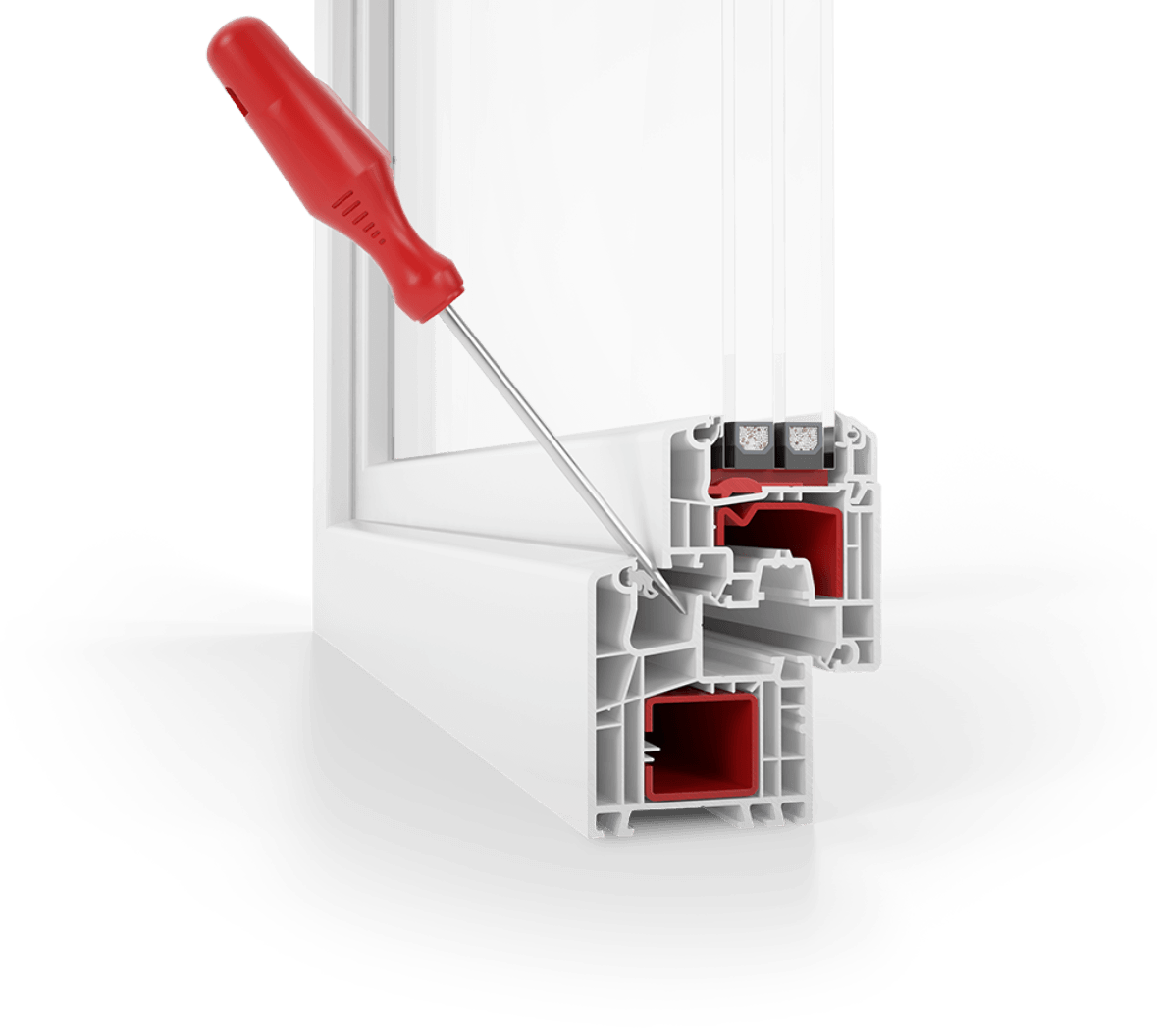Burglary protection starts with your windows!
Are you interested in burglar-proof windows? Rightly so!
Burglary resistance is an important point to be considered when buying new windows as, in most cases, this is where thieves tend to break in. And the burglars will take anything they want; anything but the risk of wasting too much time trying to open a burglar-proof window. Every minute that the window resists a break-in counts. Experience has shown that perpetrators usually give up after only a couple of minutes. That's why the police recommend a burglary protection class of at least RC2 when buying new windows.
With aluplast windows, you have already opted for ultimate safety in the sash.
safetec inside
A smart way to thwart attempted break-ins
The fixed interior profile web for the third gasket all around the window frame improves thermal insulation and prevents the sash from being forced open easily.
Breathe easy: With safetec inside you can increase the safety of your windows.
Stress-free living with technology made by aluplast®


bonding inside
Bonding technology with added safety
Bonded glass panes were first used in the automotive industry, where they soon became industry standard. aluplast recognized the advantages early on and has advanced the technology for the special requirements needed for window construction for buildings.
The window's glass pane is bonded all the way round the profile.The adhesive provides an extra strong bond between the pane and the sash: the best way to prevent the sash from being pried open and also an essential requirement for burglary resistance class RC2.
Burglary protection with state funding
Burglary protection is the only option! That's why German home owners who wish to protect their house against unwanted visitors can receive state funding in the form of reduced-interest loans and grants from KfW (a German bank specialising in development). This type of funding can be used to get rid of a home's typical weak points, like the windows or front door.
What you need to know:
- The KfW Promotion Programme 455 has a minimum investment amount of €500.
- For individual burglary protection measures, you can receive a grant for 10% of the costs that are eligible for funding. For front doors, this means that you can be reimbursed for totals between a minimum of €50 and a maximum of €1,500.
- You must submit your application to KfW before starting any work. The application process can be completed quickly and easily from the comfort of your own home using the KfW portal. As soon as your funding has been approved, you can get going with your work.
To the KfW portal (only German home owners are eligible)
Overview of RC resistance classes
In the past, a range of resistance classes were used to differentiate between categories of burglary
resistance. In September 2011, a new series of European standards was published in relation to burglary
protection. The new standard (DIN EN 1627) now differentiates between RC 1 N to RC 6. RC stands for
resistance class.
The following table lists the assumed mode of break-in for resistance classes RC 1 N
to RC 6.
| DIN EN 1627 | DIN V ENV 1627 (valid until 09/2011) | Period of resistance | Type of burglar / method used |
|---|---|---|---|
| RC 1 N | 3 min | Components in this category only offer basic protection against attempted break-ins using physical strength, such as kicking, pulling, etc. In this class, only windows with standard glass are listed. | |
| RC 2 N | without safety glass | 3 min | Here, opportunist burglars use simple tools, such as screwdrivers, pliers, chocks, etc., to force open the locked component. As an attack on the glass should be ruled out, this glass uses standard glass only. |
| RC 2 | 3 min | The type of burglar and method used are the same as the previous class. However, safety glass in accordance with EN 356 is required from class RC 2 and above. | |
| RC 3 | 5 min | The practised criminal uses an additional screwdriver and crowbar to break open the locked element. | |
| RC 4 | 10 min | To break in, the experienced criminal uses impact tools, saws and a cordless drill. | |
| RC 5 | 15 min | In addition, the experienced criminal uses electrical tools, such as drills, jigsaws, reciprocating saws and angle grinders with a maximum diameter of 125 mm. | |
| RC 6 | 20 min | The only difference to the previous resistance class is the use of an angle grinder with a maximum diameter of 250 mm. |

